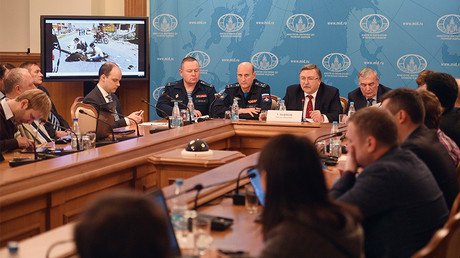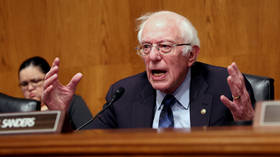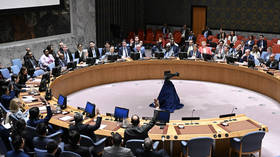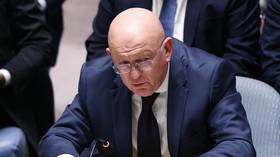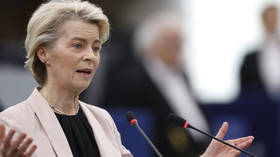'Syria chemical weapons probe poisoned by new Russia-US Cold War'
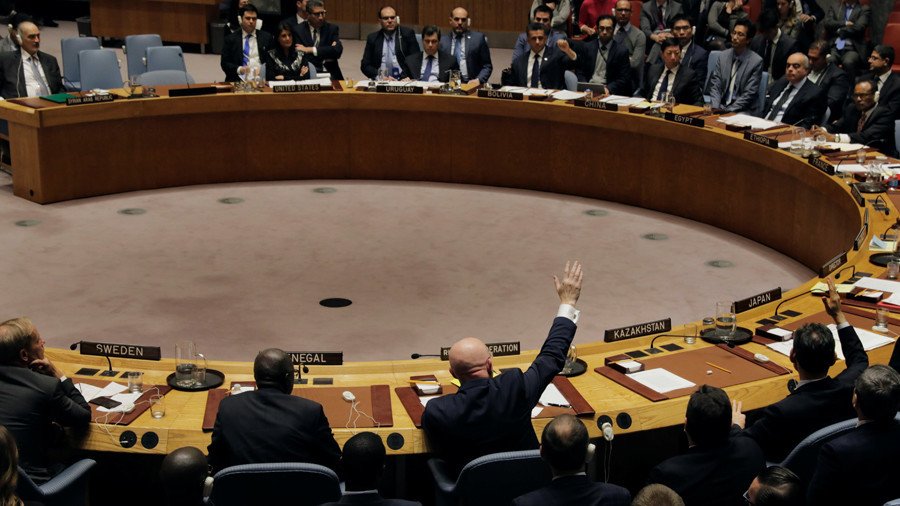
The way the OPCW-UN's investigated the chemical incident in Syria is clearly not what the world expects when it sets up an agency to investigate events like this, and wants to be able to rely on it, says Nicolas J. S. Davies, author of Blood On Our Hands.
Russia on Thursday vetoed a US draft resolution at the UN Security Council to extend the work of a joint inquiry into the Khan Shaykhun chemical attack in Syria earlier this year.
RT: Why do you think the US and Russia failed to agree on this issue?
Nicolas Davies: It’s very hard to understand what has gone wrong with the OPCW investigation here. I mean the inspectors didn’t go within a 100 kilometer of the site, presumably because it’s too dangerous for them because that area is controlled by rebels linked to Al-Qaeda. Yet, they trusted the same rebels to gather samples and have custody of all the physical evidence they then examined, which is a complete violation of the OPCW’s rules for handling materials like that and for conducting an investigation.
Russian resolution on international inquiry into chemical attacks in #Syria has failed at UN Security Council https://t.co/iOqanZ1Mpspic.twitter.com/SgBOthDb0t
— RT (@RT_com) November 16, 2017
Then in the report, they issued they seemingly ignored all the contrary evidence that suggested there might have been some other cause for these deaths of 82 people – possibly a bomb hitting another building nearby that was that was storing pesticides – that is one of the theories. But clearly that is not what the world expects of the OPCW or of the UNSC. When the world signs an international treaty and establishes an agency to investigate an incident like this, we expect to be able to rely on it, to conduct its investigations with integrity and to hear from experts from all sides and all points of view. This clearly didn’t happen. There are American experts challenging this … John Gilbert, who used to work for the Defense Department, I believe. So we haven’t had the kind of thorough investigation of this incident that all those ambassadors sitting on the UNSC should be demanding and should expect.
RT: Do you think we’ll ever get to the bottom of what actually happened in Syria following this latest disagreement at the UNSC?
ND: I don’t know. This just seems to be poisoned by what people are calling a new Cold War between the US and Russia. Frankly, the hostility seems to becoming much more from the American side then the Russian side. But it really threatens the whole world. We’ve got the two countries with more of 90 percent of the nuclear weapons in the world that seem to be on a collision course. At the same time, we have a crisis on the Korean peninsula, where essentially the North Koreans have come to believe that the only way they can keep their own people safe is to develop weapons that threaten the lives of millions of Americans.
We have to acknowledge that this is just a breakdown in the rule of international law, in the world, and this has really developed for the most part since 9/11, and since the US invasions of Afghanistan, and Iraq and serial US acts of aggression against country after country, for which there has been no legal or political accountability whatsoever…
